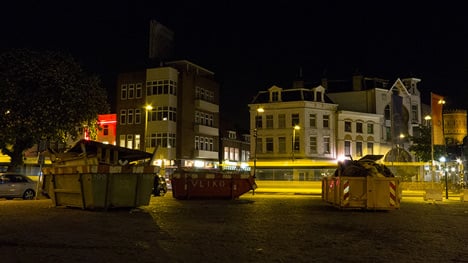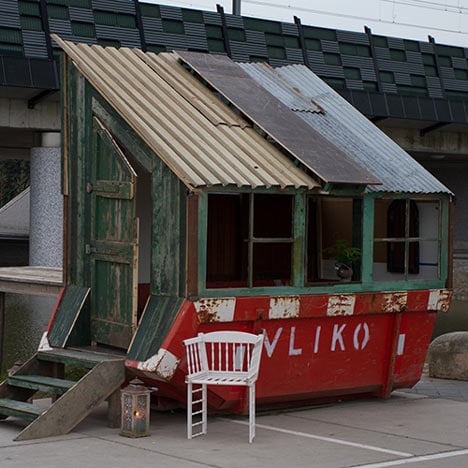
Straatlokaal by Rikkert Paauw and Jet van Zwieten
Designers Rikkert Paauw and Jet van Zwieten of Foundation Projects transform refuse skips and their contents into small buildings.
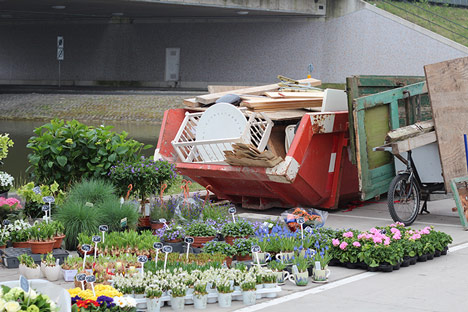
The designers transport the skips to urban locations before filling them with materials and furniture sourced from the surrounding streets or given to them by local residents.
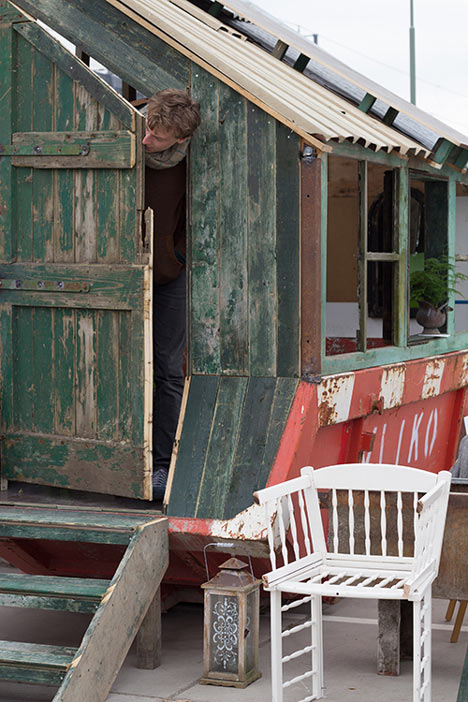
The skips act as foundations for the patched-together structures, which become meeting places where people can gather to chat or have a coffee from the built-in bar.
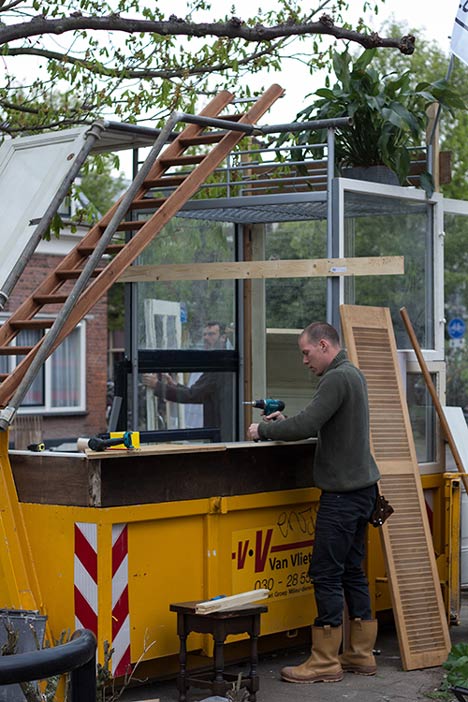
The project was presented during Vienna Design Week in 2010 and then at the Milan Public Design Festival in 2011, with the different locations yielding completely different materials and outcomes.
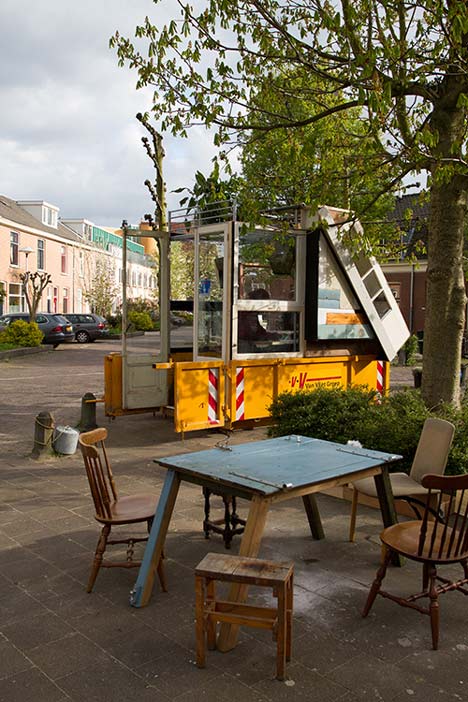
In April this year Paauw and van Zwieten built three of the buildings in their hometown of Utrecht, which were then relocated from their scavenging sites to a common location where they formed the hub of a mini festival.
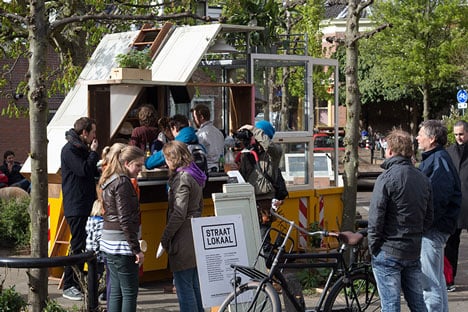
A few years ago Goldsmiths University graduate Oliver Bishop-Young built all sorts of things inside skips, including a swimming pool and a skate ramp – see our previous stories.
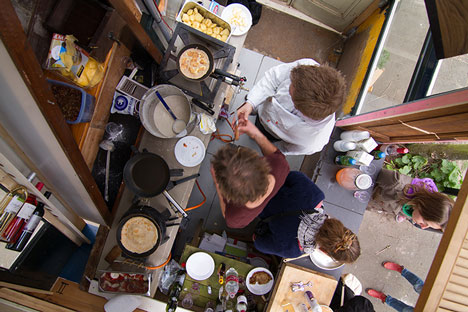
Here is some more information from the designers:
Straatlokaal: social gathering in the city
In three Utrecht districts a container is filled with materials to be found in the area. In no more than a week, a small house will be constructed using those materials.
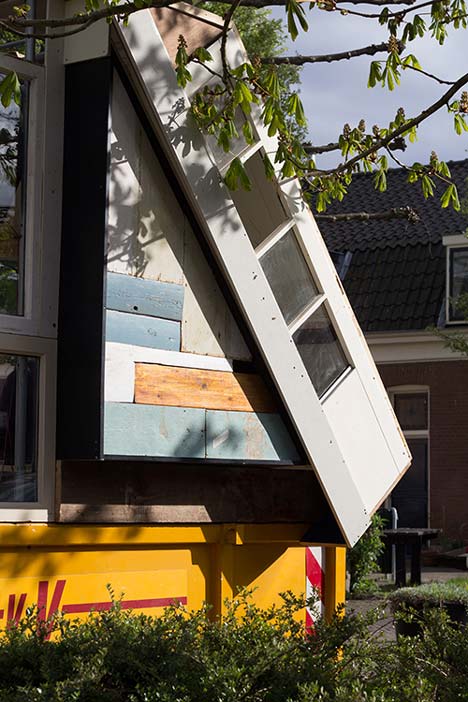
All three structures will subsequently be relocated to centre square the Neude where, together, they will form a pavilion with a bar and events.
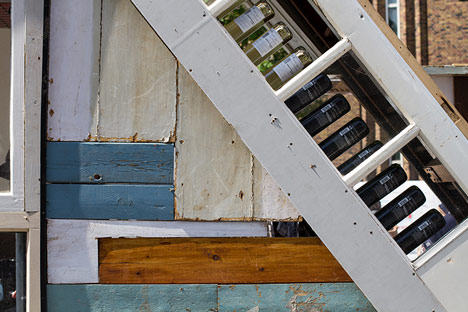
Container House
A construction container developing into a house. It initially formed the idea for a logo for Rikkert’s design studio Stortplaats van Dromen (Dumping-ground for Dreams). Jet thought it was too complicated to be a logo, but saw the potential to actually execute the idea in real life.
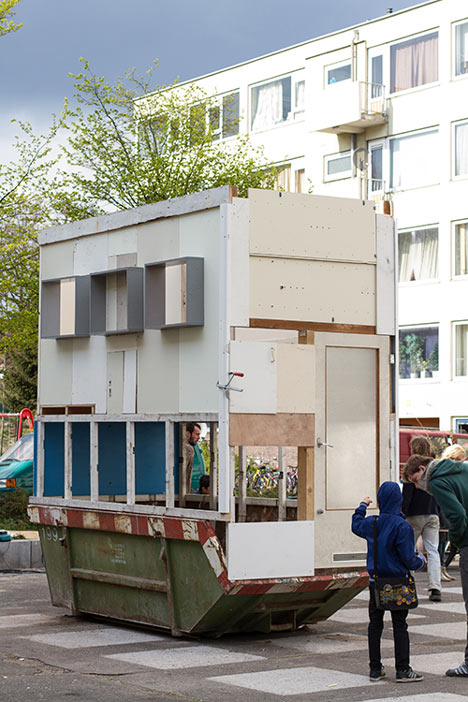
Foundation Projects
Two years on, that day came. During the international Public Design Festival in Milan, designers Rikkert Paauw and Jet van Zwieten realize their first homemade house under the name Foundation.
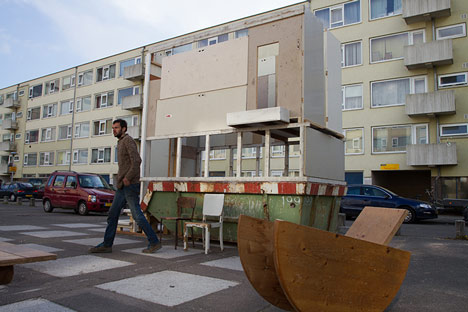
A container is placed in a supermarket parking lot in the middle of a working-class district, and Jet and Rikkert go out into the neighbourhood with a small team of people to gather materials.
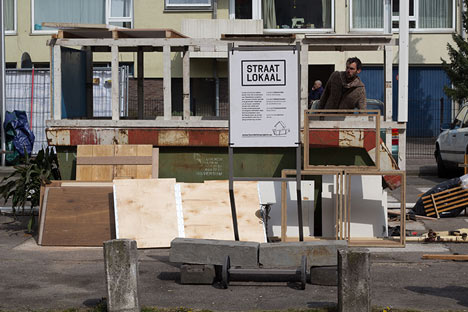
The stuff they collect isn’t just refuse found on the streets, but also donated by residents, such as old wood from sheds, furniture that has been sitting in attics for years and discarded interior furnishings from local entrepreneurs. Within a week, the container transforms into an actual little building, with a bar.
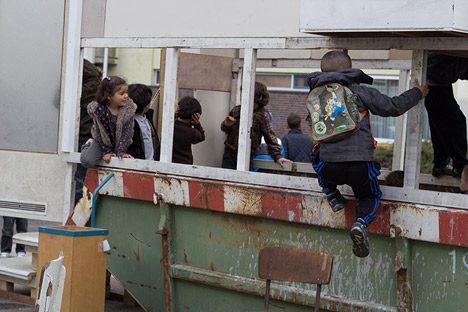
During the festival, the bar becomes a meeting point where people share a coffee and show each other what has been done with their old stuff.
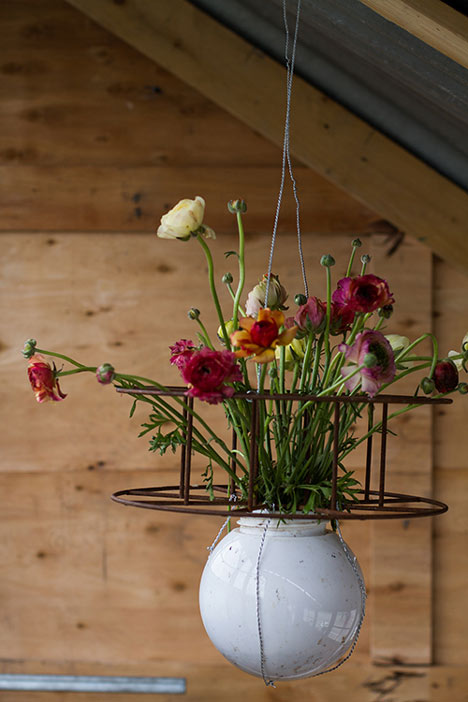
Hometown Utrecht
The project was also held in Vienna during the Vienna Design Week 2010 and again during the Milanese Public Design Festival in 2011. Every disctrict produces a completely different structure made from materials that are characteristic of each particular place. Thanks to a grant from the Utrecht provincial authorities intended for young talented designers, Jet and Rikkert’s home town of Utrecht will be the next city to host the event.
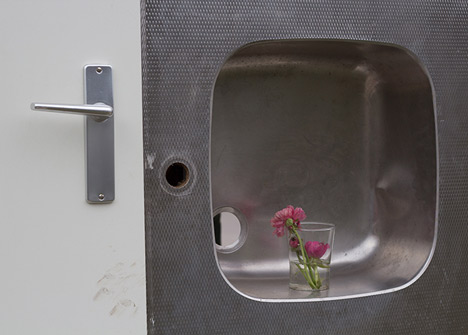
Streetcombing in three districts
In April, the designers and their teams, each with their own container, will pitch up in Wittevrouwen, Kanaleneiland, and Leidsche Rijn for a week. They will roam the neighbourhood on carrier bikes, streetcombing and inquiring, constantly on the look-out for building materials and discarded furniture.
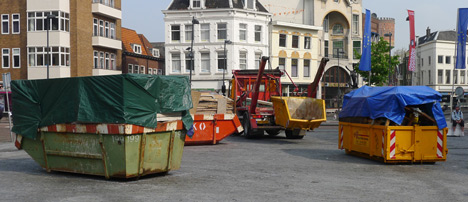
In all three districts, all these materials will be used to build a house for which the container is the foundation. Residents are welcome to supply materials themselves and possibly lend a hand in the building process. Images and sounds of the building process will be recorded.
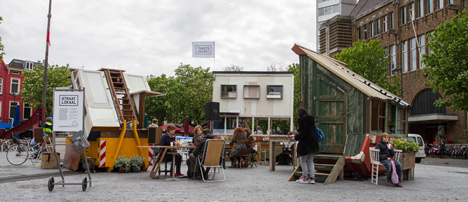
Pavilion on the Neude
After three weeks of streetcombing and building, the structures will be relocated to the Neude, where from 5-10 May, a bar named Straatlokaal will be opened. Straatlokaal will have a simple daily program of events including music, breakfast debates and speakers from the different districts.
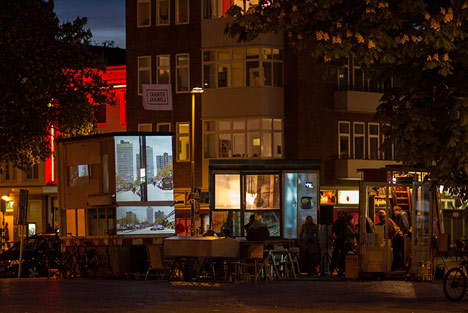
By means of videomapping, the story behind several materials will be projected onto those materials. Think of, for example, a picture of a resident, images of a messy attic, a renovation or of vacant land. Music and soundscapes (by Sonostruct~ and Jacob van de Water) made using the audio tapings will be played in the pavilion. In this way, visitors will get a multi-layered look into the three different Utrecht areas.
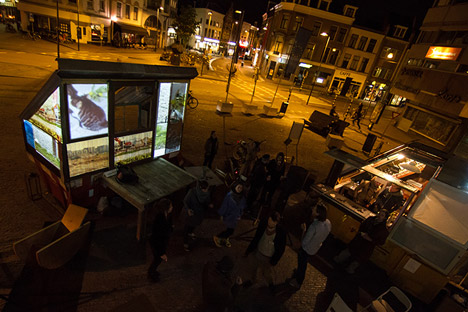
Unexpected encounters
The elements that truly set the Foundation projects apart are the innovative way in which the materials are transformed, the fact that there is always room for unexpected contributions and the manner in which Foundation forges a connection between local parties during the projects.
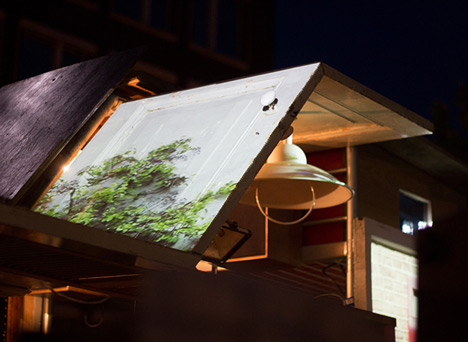
“People from all walks of life will find their way to the project. People that hang out on the streets, but also architects, residents that come to donate materials and people interested in design. One of Foundation’s main goals is to bring people together and inspire dialogue between persons from different backgrounds. Until now, that is exactly what has happened at all previous projects and that is why we will just carry on.”
